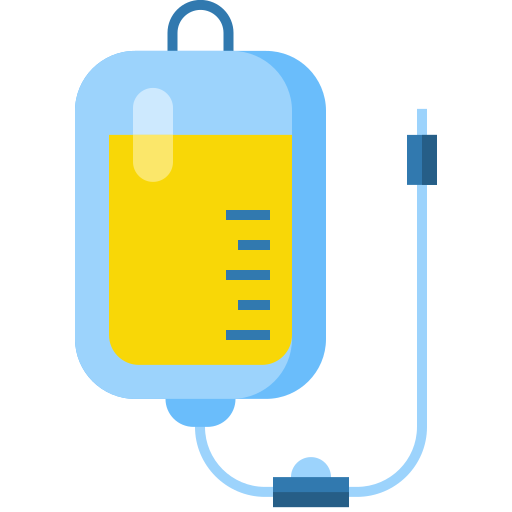
Alteplase
1 mg/1 ml
Radiant Pharmaceuticals Ltd.
Product Details
Description
Acute Ischemic Stroke: Alteplase is indicated for the treatment of acute ischemic stroke. Exclude intracranial hemorrhage as the primary cause of stroke signs and symptoms prior to initiation of treatment. Initiate treatment as soon as possible but within 3 hours after symptom onset. Acute Myocardial Infarction: Alteplase is indicated for use in acute myocardial infarction (AMI) for the reduction of mortality and the reduction of the incidence of heart failure. Pulmonary Embolism: Alteplase is indicated for the lysis of acute massive pulmonary embolism, defined as: Acute pulmonary emboli obstructing blood flow to a lobe or multiple lung segments. Acute pulmonary emboli accompanied by unstable hemodynamics, e.g., failure to maintain blood pressure without supportive measures.
Following bolus dose, if indicated: 50 mg vials: administer using either a polyvinyl chloride bag or glass vial and infusion set. 100 mg vials: remove from the vial any quantity of drug in excess of that specified for patient treatment. Insert the spike end of an infusion set through the same puncture site created by the transfer device in the stopper of the vial of reconstituted Alteplase. Peel the clear plastic hanger from the vial label. Hang the Alteplase vial from the resulting loop. Alteplase is for intravenous administration only. Extravasation of Alteplase infusion can cause ecchymosis or inflammation. If extravasation occurs, terminate the infusion at that IV site and apply local therapy. Do not add any other medication to infusion solutions containing Alteplase.
The interaction of Alteplase with other cardioactive or cerebroactive drugs has not been studied. Anticoagulants and antiplatelet drugs increase the risk of bleeding if administered prior to, during, or after Alteplase therapy. In the post-marketing setting, there have been reports of orolingual angioedema in patients (primarily patients with AIS) receiving concomitant angiotensin-converting enzyme inhibitors.
Acute Ischemic Stroke: Do not administer Alteplase to treat acute ischemic stroke in the following situations in which the risk of bleeding is greater than the potential benefit [see Warnings and Precautions (5.1)]: Current intracranial hemorrhage Subarachnoid hemorrhage Active internal bleeding Recent (within 3 months) intracranial or intraspinal surgery or serious head trauma Presence of intracranial conditions that may increase the risk of bleeding (e.g., some neoplasms, arteriovenous malformations, or aneurysms) Bleeding diathesis Current severe uncontrolled hypertension. Acute Myocardial Infarction or Pulmonary Embolism: Do not administer Alteplase for treatment of AMI or PE in the following situations in which the risk of bleeding is greater than the potential benefit: Active internal bleeding History of recent stroke Recent (within 3 months) intracranial or intraspinal surgery or serious head trauma Presence of intracranial conditions that may increase the risk of bleeding (e.g. some neoplasms, arteriovenous malformations, or aneurysms) Bleeding diathesis Current severe uncontrolled hypertension.
The following adverse reactions are: Bleeding Orolingual Angioedema Cholesterol Embolization Reembolization of Deep Venous Thrombi during Treatment for Acute Massive Pulmonary Embolism.
Pregnancy Category C. Alteplase is embryocidal in rabbits when intravenously administered in doses of approximately two times (3 mg/kg) the human dose for AMI. No maternal or fetal toxicity was evident at 0.65 times (1 mg/kg) the human dose in pregnant rats and rabbits dosed during the period of organogenesis. There are no adequate and well-controlled studies in pregnant women. It is not known whether Alteplase is excreted in human milk. Many drugs are excreted in human milk.
Increases the risk of bleeding. Avoid intramuscular injections. Monitor for bleeding. If serious bleeding occurs, discontinue Alteplase. Monitor patients during and for several hours after infusion for orolingual angioedema. If angioedema develops, discontinue Alteplase. Cholesterol embolism has been reported rarely in patients treated with thrombolytic agents. Consider the risk of reembolization from the lysis of underlying deep venous thrombi in patients with pulmonary embolism.
Pediatric Use: Safety and effectiveness of Alteplase in pediatric patients have not been established. Geriatric Use: Acute Ischemic Stroke: In exploratory, multivariate analyses of Studies 1 and 2, age greater than 77 years was one of several interrelated baseline characteristics associated with an increased risk of intracranial hemorrhage. Efficacy results suggest a reduced but still favorable clinical outcome for Alteplase-treated elderly. Acute Myocardial Infarction: In a large trial of accelerated-infusion Alteplase that enrolled 41,021 patients with AMI to one of four thrombolytic regimens [see Clinical Studies (14.2)], patients over 75 years of age, a predefined subgroup, comprised 12% of enrolment. In these patients, the incidence of stroke was 4.0% for the Alteplase accelerated infusion group, 2.8% for streptokinase IV [SK (IV)], and 3.2% for streptokinase SQ [SK (SQ)]. The incidence of combined 30-day mortality or nonfatal stroke was 20.6% for accelerated infusion of Alteplase, 21.5% for SK (IV), and 22.0% for SK (SQ).
Anti-platelet drugs, Fibrinolytics (Thrombolytics)
-
Support 24/7
Call us anytime -
100% Safety
Only secure payments